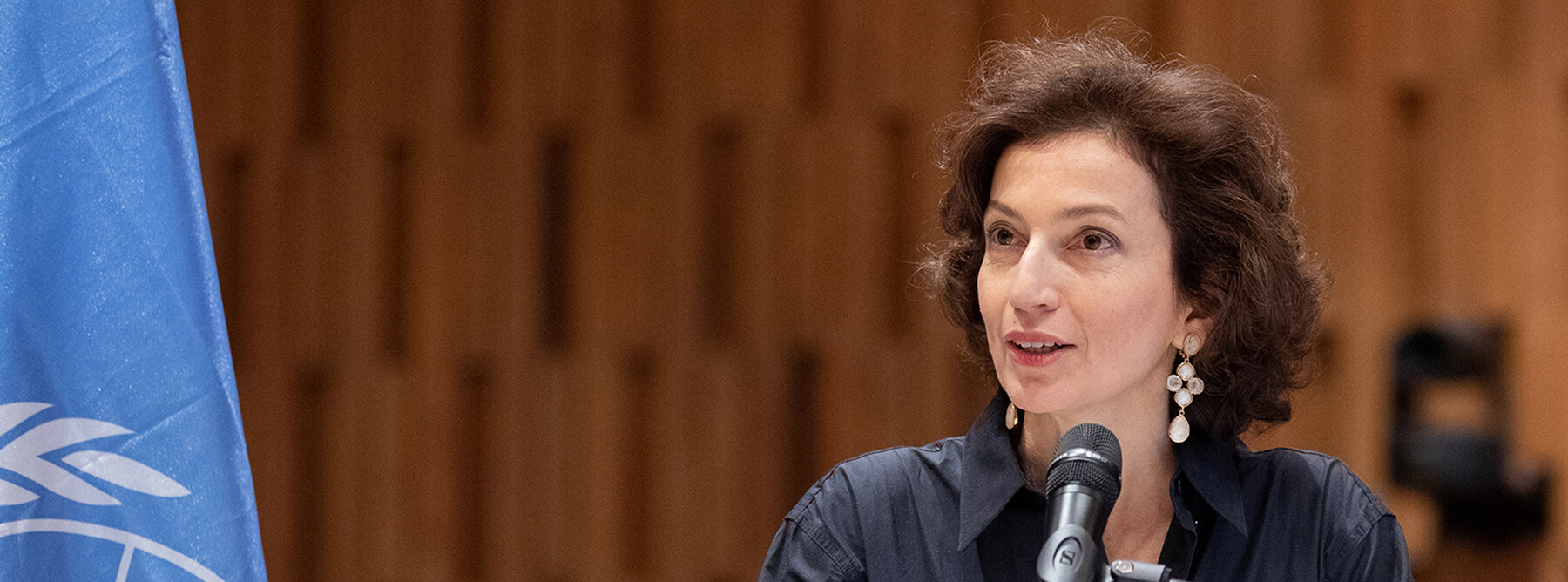Message from Ms Audrey Azoulay, Director-General of UNESCO, on the occasion of World Press Freedom Day, 3 May 2024

The planet is on the brink of a climatic precipice: 2023 was the hottest year on record, with an average global surface temperature 1.45°C higher than in the pre-industrial era. Other alarming records were also broken for ocean surface temperatures, sea level rise and glacier retreat.
As humanity faces up to this existential peril, we must remember, on this World Day, that the climate challenge is also a journalistic and informational challenge. No effective climate action is possible without access to free and reliable scientific information.
That is why this year’s theme highlights the essential link between protecting freedom of expression – a global public good – and preserving our planet.
But this World Day is also a call to action to protect journalism and free, pluralistic information.
A call to make the major social networks more accountable, so that they can step up their moderation and regulation measures to counter disinformation and conspiracy around climate change, in line with the Guidelines for the Governance of Digital Platforms published by UNESCO in November 2023.
A call to equip all citizens with the critical thinking skills needed to confront disinformation.
A call, also, to protect journalists and media professionals, artists and scientists, who are all too often the victims of harassment, violence and censorship. A UNESCO study published this month shows that 70% of environmental reporters have been the victims of attacks, threats or pressure because of their work, and 44 environmental journalists have been killed in the last 15 years.
Access to reliable information is all the more vital in this “super-election year”, when some 2.6 billion citizens are called to the polls. How can voters remain masters of their own destiny if their choices are distorted by false information and polarized by hate speech?
In this context, UNESCO remains firmly committed to defending freedom of expression as a fundamental human right and a pillar of democracy. That is why we defend journalists and train them in safety, including in crisis situations such as Ukraine, Afghanistan, Sudan and Haiti. At the same time, we have trained thousands of judges, prosecutors and law enforcement officers in the issues surrounding freedom of expression, because they are the key players.
Over the next few weeks, we will also be launching initiatives specifically dedicated to the environment, to provide environmental journalists with greater protection and to strengthen media education and information on the major social networks.
On 3 May this year, UNESCO would like to relay a simple message: protecting free and pluralistic information also means protecting our democracies and our planet.
DG/ME/ID/2024/23 – Original: French
